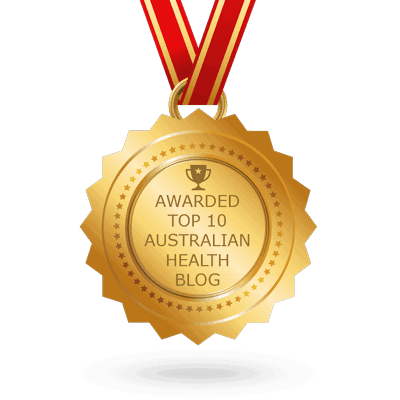Daily exercise is vital for our health and well-being. However, using tools to relieve muscle soreness after a workout is just as important. These can help restore your energy and protect you from injury.
Here are some of them.
1. Foam Roller
Delayed-onset muscle soreness or DOMS is a common complaint among professional athletes and fitness enthusiasts post-workout.
However, study shows that preventing DOMS is one of the many benefits of massage. The good news is you don’t need professional massage therapists to help you each time.
Self-massage tools like foam rollers are as effective in targeting and relaxing trigger points. Moreover, foam rolling works well even before you start your routine. The firm, compressed foam types are great, but textured rollers are also available for deep-seated pain.
The TriggerPoint Grid Vibe Plus, for example, even comes with four vibration frequencies for better effects (check out our in-depth review of this product).
You can also check out our buying guide and reviews for some of the best vibrating foam rollers in Australia. Our list of foam roller alternatives for muscle recovery might give you more ideas, too.
2. Stretch Bands
Low to moderate movements after exercising allow your body to cool down gradually. These, in turn, prevent muscle soreness or leg cramps.
You might have heard your fitness instructor say that the best way to hasten post-exercise muscle recovery is to keep moving. Most would follow this advice by walking or jogging for a few minutes. You can refer to our list of other cool-down techniques for your sweat session.
Light stretches can also help improve blood flow and speed up muscle repair. You can step up dynamic stretching, too, with a set of stretch bands in your gym bag, like the Panathletic Resistance Bands.
This set of five colourful latex has varying resistance levels to suit your needs. The loop bands are lightweight and skin-friendly. It also includes an eBook with illustrated resistance exercises.
3. EMS TENS Machine
While moderate activities help with post-workout muscle recovery, there are times when this is difficult. For example, if you’re a runner, the last thing you want is to move your ankles and calves after running for several kilometres.
There are ways for runners to avoid leg pain, though. Still, a powerful tool for quick relief is a welcome addition to anyone’s workout regimen.
In that case, an EMS TENS machine can help you recover without additional activity input. This device alleviates pain through electrical stimulation.
Exercise makes your muscles swell, making small blood vessels even smaller. When this happens, blood flow gets cut off, and pain ensues.
The EMS TENS machine can then make your tight muscles twitch to loosen tight knots and improve blood circulation. If you’re keen to try electrotherapy, the compact Healsage EMS Machine is perfect.
It’s easy to use and comes with broad pads to cover even large muscle areas. You can learn more about EMS TENS machines from our buying guide.
4. Cold Therapy Pack
Using an ice pack or sitting in an ice bath, especially among runners, is a foolproof technique to relieve muscle soreness. Sportsmen call this effective method cold water immersion therapy.
The problem with these recovery techniques, however, is that they are not portable. They cannot provide targeted relief, too. Also, some may take time to set up.
But now, there are several cold therapy packs available. Manufacturers even design them to suit specific body parts.
The MEDiBrace Cold Compression Therapy, for example, comfortably straps around your ankle to control swelling, pain, oedema and hematoma. What’s more, it has a built-in pump to provide compression therapy.
Check out our article on when to use hot and cold packs for optimum relief and recovery.
5. Massage Gun
Percussive therapy devices like a massage gun are yet another excellent muscle recovery tool and a popular one at that. Fitness enthusiasts and various types of athletes attest to its ability to relax muscles, prevent DOMS and improve blood circulation.
It works the same way as foam rolling. But with a massage gun, you don’t need to exert as much effort when using it (check out this article on how to use it for maximum results). Moreover, it comes with interchangeable attachments to massage specific muscle groups.
The RENPHO Massage Gun is a great starter. Aside from being relatively affordable than similar massagers, it has a quiet motor and a storage bag – perfect for bringing to the gym!
6. Memory Foam
The key to full muscle recovery from an intense workout or training session is a good night’s rest. You need at least 8 hours of sleep to regain your energy and allow the body to recover internally.
When resting, try not to think about work and other stress factors for a while. Do your best to stay away from your phone or computer for at least an hour before you sleep.
More importantly, make sure your bed is all comfy. One way to do that is to get a supportive mattress.
I especially like the Cushy Form Bed Wedge Pillow. This memory foam cushion can turn your bed into a recliner to help you sleep better.
It also takes the shape of your shoulders, neck and head for optimum relaxation. You can even use it under your legs or keep it upright to support your back.
Do you need more tips or tools to relieve muscle soreness after a workout? Our list of post-workout quick fixes can help!
- What Are the Advantages and Disadvantages of Folding Treadmills? - 11 March 2025
- Can You Use a Massage Gun When Pregnant? - 10 March 2025
- What is the Best Pre-Run Food? - 6 March 2025






